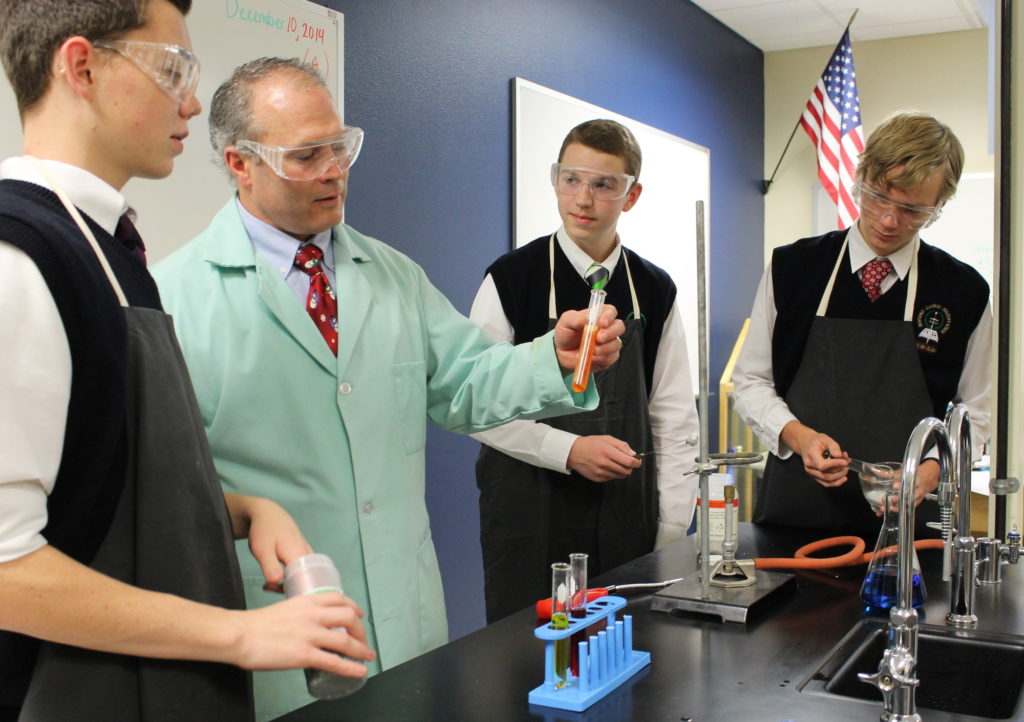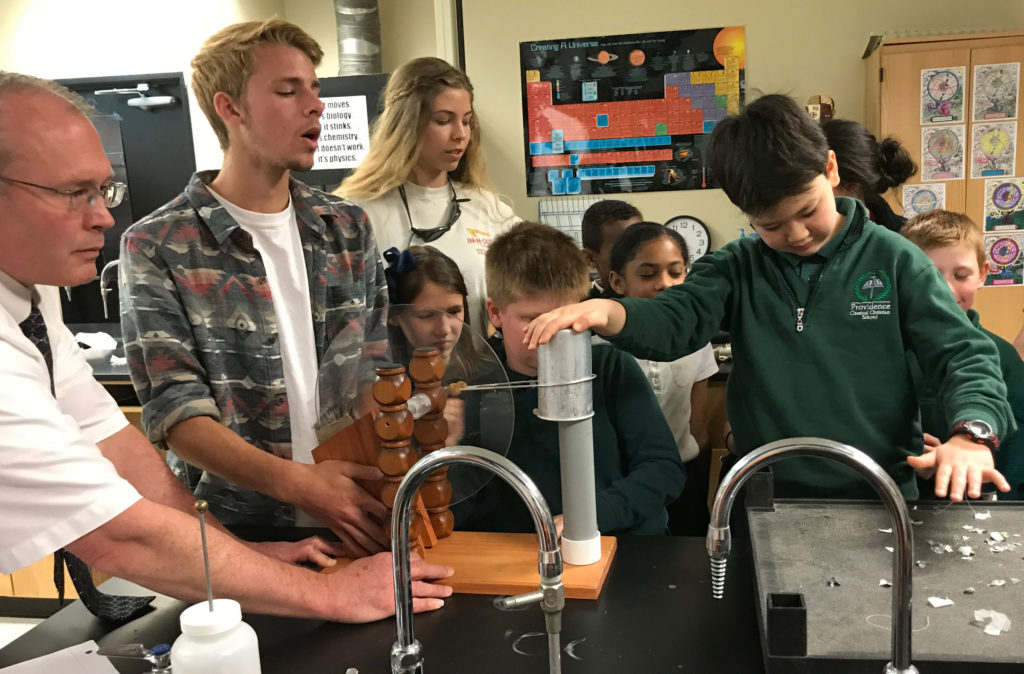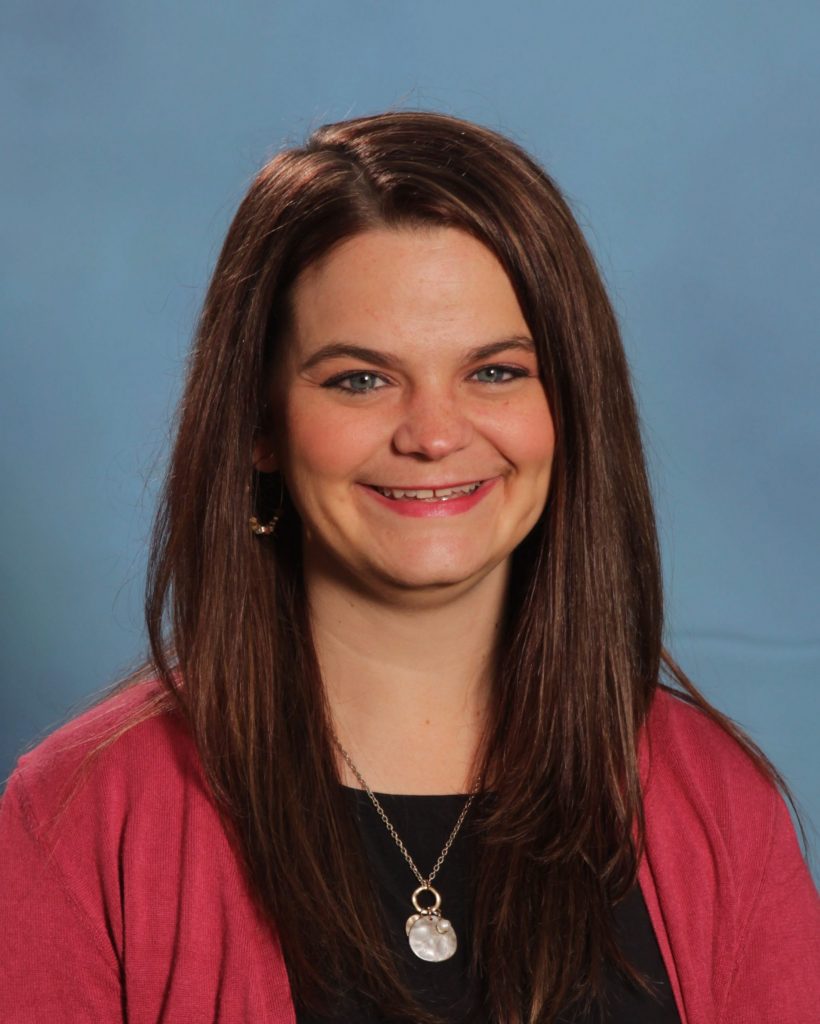One of the great and lofty claims of the classical method of education is that it produces students who love learning. Yes, we as their educators hope they love to read excellent works of literature; we hope they are fascinated by mathematical formulas and equations; we hope they enjoy studying history. But learning does not merely apply to studying Latin, Socrates, the Bible, molecules, or verb tenses. Students who love learning just want to know. They want to know why they have to drink milk all the time and then why milk makes their bones strong. They want to know how looking directly at the sun can make them go blind. They want to know what would happen if they dropped the phone off the second-story deck onto the cement. They want to see just how big an explosion they can get by shaking up a can of pop and then ask why this makes it fizz. The child who will love learning is the child who wonders; she thinks, “I wonder what would happen if I did this…”
 Science is an excellent opportunity to encourage and feed this desire to wonder about things. Scientists study everything! We have the chemistry of cooking (a fascinating study that results in delicious experiments), sports medicine, kinesiology (the study of movement—as in a dance doctor), and botany (the study of plants). Think about the engineers who create turf for soccer and football teams, and those who study fabrics and materials to create the lightest weight but most supportive cleats. It’s scientists who study and make formulas for make-up, lotion, shampoo, and nail polish. Computers, x-ray machines, spaceships, and life-saving devices—all these began with someone saying, “I wonder…” or “What if?”
Science is an excellent opportunity to encourage and feed this desire to wonder about things. Scientists study everything! We have the chemistry of cooking (a fascinating study that results in delicious experiments), sports medicine, kinesiology (the study of movement—as in a dance doctor), and botany (the study of plants). Think about the engineers who create turf for soccer and football teams, and those who study fabrics and materials to create the lightest weight but most supportive cleats. It’s scientists who study and make formulas for make-up, lotion, shampoo, and nail polish. Computers, x-ray machines, spaceships, and life-saving devices—all these began with someone saying, “I wonder…” or “What if?”
In the classroom, students learn how to find their own answers to their “what if’s” and “I wonder’s.” They learn to turn their wondering into observation and to come up with an educated guess based on the knowledge they either already have or are learning. After this, students create a plan to test their guess—an experiment. However, in the classroom setting, teachers are not always able to allow students to study whatever interests them. Most often, as a subject of study science is focused on one topic. Thus, at the end of the year, we have the privilege to allow students to pursue whatever topic they would like through their science fair project.
The science fair project offers an opportunity for students to study whatever interests them. Whether sports, chemistry, cooking, growing things, light, heat, movement, or any other questions they can come up with—the science fair project helps them pursue this natural curiosity in a simple way while guided by the scientific method.
 In our fast-paced and technology-driven world, it is hard to stop long enough to ask the what-if’s, why’s, and how’s. The temptation to take things for granted is strong, and then we find ourselves bored with the world around us. But the Bible shows us that it is through the world around us that God’s glory is revealed.
In our fast-paced and technology-driven world, it is hard to stop long enough to ask the what-if’s, why’s, and how’s. The temptation to take things for granted is strong, and then we find ourselves bored with the world around us. But the Bible shows us that it is through the world around us that God’s glory is revealed.
- Psalm 29:3 “The voice of the LORD is upon the waters; the God of glory thunders…”
- Habakkuk 3:4 “His brightness was like the light; He has rays flashing from His hand, and there His power was hidden.”
- Deuteronomy 5:24 “Surely the Lord our God has shown us His glory and His greatness, and we have heard His voice from the midst of the fire…”
- Isaiah 49:3 “You are My servant, Israel, in whom I will show My glory.”
G.K. Chesterton sums up well our temptation to ignore God’s creation when he states, “We are perishing for want of wonder, not for want of wonders.”
The point of grammar school science is to encourage the students to wonder at God’s creation and through their wonder to never miss the glory of God in the crawling of an ant, the baking of cookies, the fizziness of a can of pop, or the launching of a baking soda rocket. And the purpose of the science fair project is to allow them to answer just one of those questions that they have been wondering about.
